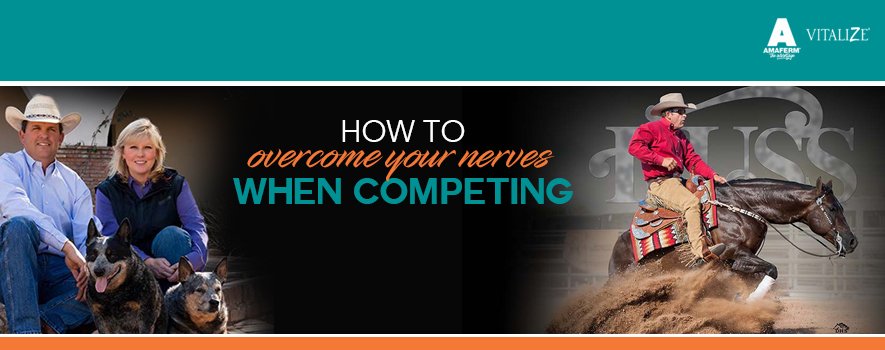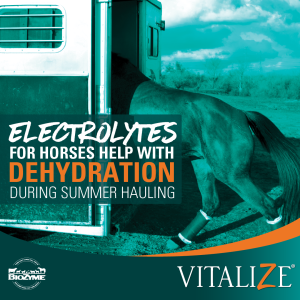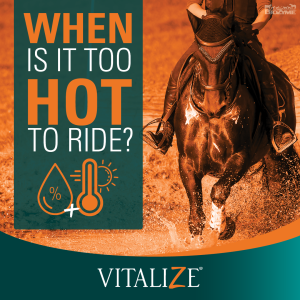
Anxiety. Nerves. The jitters. Whatever you call the feeling of sweaty palms and the sensation of your stomach doing flip-flops while your heart pounds through your chest is a normal reaction when you are getting ready to compete. However, there are steps you can take to overcome these pre-competition jitters and calm your nerves.
Dan and Wendy Huss, Scottsdale, Ariz., have been training horses and riders for decades – both in various disciplines and in techniques to calm their nerves when competing. Dan, an Ohio native, got his start in showing horses in 4-H, and furthered his education in the equestrian industry at Findlay College (now University of Findlay), where he ultimately went on to teach equine classes full-time for 19 years. Today, Dan focuses on training students in the sport of reining. Earlier this year, he earned the opportunity to step out of his trainer role and compete in the FEI World Equestrian Games at the Tryon International Equestrian Center in Mill Spring, N.C., where last week, the U.S. Team he was only one of five members of earned the Gold in Reining. Before the Games, we were able to speak to Huss, while he was physically and mentally training for the big event.
“I get nervous at the weekend shows,” Dan said with a laugh, but adds that with the help of a good horse, that definitely helps in Reining. “Primarily you need to have a really nice horse. If you have a horse that is really consistent that can complete all the maneuvers, that is honest and still very athletic that is important. As horses get shown over the years they lose their ability to score high.”
Dan says although he trains his students and himself slightly differently when it comes to preparing their horses for the pattern, he follows a similar pattern for training the students to relax and follow a technique called positive visualization. With positive visualization, the rider takes time to memorize the pattern, and “run” the pattern in his or her mind. The rider prepares for any challenges that might happen while visualizing the course and works through the challenges using positive reinforcement while they are still on the ground.
“At shows, students visualize to the best of the horse’s best capability. If there is a weak spot, in the pattern, they have to visualize how they are going to get through that spot. As they are talking about it to themselves while they visualize, I always encourage them to use positive terminology instead of negative terminology,” he said.
Dan said for his students, which are primarily non-pro (amateur) and youth riders, he will get the pattern for a particular competition they are training for as soon as it is posted online or published. He likes the riders to practice that pattern often so both the riders and horses are comfortable with it and less likely to go off pattern the day of the show. For himself, he will practice a pattern a few times, but is experienced enough of a rider, that he rides the pattern a few times and works through it more through the positive visualization.
Leading up to the day of the competition, Dan reminds riders of some basics like getting enough rest, staying hydrated and eating balanced meals.
“The more tired you get, the more nervous you get,” he said.
Dan has a show-day routine that works well for him to keep his nerves tucked away. He gets a good sleep the night before a show, and wakes up to eat a big, healthy breakfast. During the day he eats smaller meals that will settle well with his stomach that include fruits and protein. About two hours before he shows, he takes a 15 to 30-minute nap. And about an hour before he shows, he’ll start warming up his horse. While he’s warming up, he does some breathing exercises to calm his own nerves.
At shows, he has a series of three energy exercises he does that help soothe him. However, he said these exercises aren’t for everyone because not everyone can feel their own energy.
When his time comes, he’s ready to compete. If he’s prepared adequately with nourishment, positive visualization, rest and exercise, he knows he’ll come out at the top of his game. And when the pattern is over, the positive visualization will help him know if there is anything he might have done to improve his performance.
Dan and Ms Dreamy, an 8-year-old Quarter Horse Mare, both made their World Equestrian Games debut in Reining last week as part of the first-place team. Not only did the excel in the competition, Dan was able to put into practice the relaxation techniques he’s taught hundreds of other riders.


